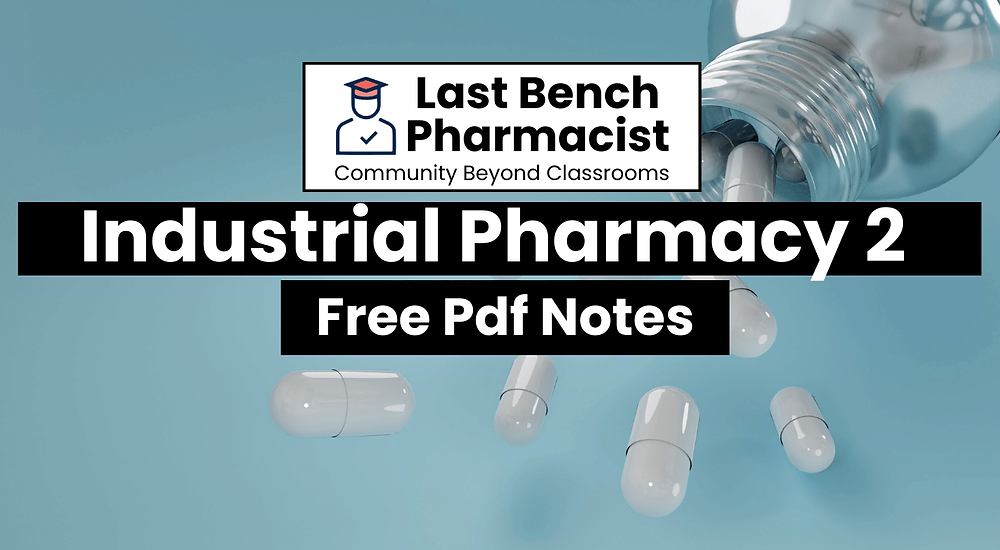



#bpharmnotes #bpharmIndustrialPharmacynotes #bpharmpdfnotes
B-Pharmers, unleash your inner alchemist in Industrial Pharmacy ! This B Pharm Industrial Pharmacy 2 PDF Notes is your gateway to transforming raw ingredients into life-saving medications. Think of it as a magical kitchen where science meets practicality, formulating tablets, capsules, injectables, and more. We’ll explore the fascinating world of dosage forms, their design, production, and quality control. Imagine understanding how excipients like fillers and binders work together to create stable and effective meds. You’ll delve into scaling-up production, learning how to go from small batches in the lab to mass manufacturing. Buckle up, because understanding these principles is crucial for ensuring the quality and efficacy of every medication that reaches patients. Remember, it’s not just about science; it’s about making a real difference in people’s lives!
This course is designed to impart fundamental knowledge on pharmaceutical product development and translation from laboratory to market
Upon completion of the subject student shall be able to
Know the process of pilot plant and scale up of pharmaceutical dosage forms
Understand the process of technology transfer from lab scale to commercial batch
Know different Laws and Acts that regulate pharmaceutical industry
Understand the approval process and regulatory requirements for drug products
Pilot plant scale up techniques: General considerations – including significance of personnel requirements, space requirements, raw materials, Pilot plant scale up considerations for solids, liquid orals, semi solids and relevant documentation, SUPAC guidelines, Introduction to platform technology
Technology development and transfer: WHO guidelines for Technology Transfer(TT): Terminology, Technology transfer protocol, Quality risk management, Transfer from R & D to production (Process, packaging and cleaning), Granularity of TT Process (API, excipients, finished products, packaging materials) Documentation, Premises and equipments, qualification and validation, quality control, analytical method transfer, Approved regulatory bodies and agencies, Commercialization – practical aspects and problems (case studies), TT agencies in India – APCTD, NRDC, TIFAC, BCIL, TBSE / SIDBI; TT related documentation – confidentiality agreement, licensing, MoUs, legal issues
Regulatory affairs: Introduction, Historical overview of Regulatory Affairs, Regulatory authorities, Role of Regulatory affairs department, Responsibility of Regulatory Affairs Professionals
Regulatory requirements for drug approval: Drug Development Teams, Non-Clinical Drug Development, Pharmacology, Drug Metabolism and Toxicology, General considerations of Investigational New Drug (IND) Application, Investigator’s Brochure (IB) and New Drug Application (NDA), Clinical research / BE studies, Clinical Research Protocols, Biostatistics in Pharmaceutical Product Development, Data Presentation for FDA Submissions, Management of Clinical Studies.
Quality management systems: Quality management & Certifications: Concept of Quality, Total Quality Management, Quality by Design (QbD), Six Sigma concept, Out of Specifications (OOS), Change control, Introduction to ISO 9000 series of quality systems standards, ISO 14000, NABL, GLP
Indian Regulatory Requirements: Central Drug Standard Control Organization (CDSCO) and State Licensing Authority: Organization, Responsibilities, Certificate of Pharmaceutical Product (COPP), Regulatory requirements and approval procedures for New Drugs.